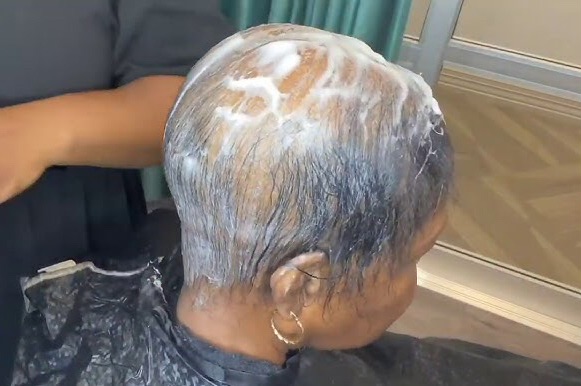If you’ve ever felt soreness on your scalp when moving your hair or taking it out of a ponytail, you’re not alone.
Many people describe this sensation as their “hair hurting,” though the discomfort actually comes from the scalp, not the strands themselves.
Understanding the root causes can help you find relief and prevent future tenderness.
One of the most common culprits is tight hairstyles. Braids, ponytails, buns, and even wigs that are secured too firmly can create tension at the follicles. Over time, this constant pulling can inflame the scalp and lead to tenderness. If left unchecked, it may even contribute to traction alopecia, a form of hair loss caused by repeated strain.
Another factor is product buildup or scalp congestion. Heavy oils, gels, and sprays can clog hair follicles, making the scalp feel sore or itchy. This is especially true if wash days are spaced too far apart, allowing sweat, sebum, and residue to accumulate.
Stress and tension headaches can also make the scalp feel sensitive. When the muscles around your head tighten, the nerve endings in the scalp may react with soreness. Likewise, hormonal shifts, changes in blood circulation, or conditions like psoriasis and seborrheic dermatitis can cause pain and tenderness.
Even something as simple as wearing your hair in the same position for too long, such as keeping it slicked back or under a head wrap, can trigger sensitivity once the style is undone.
So, what can you do to ease the discomfort? Start by loosening up your styles. Avoid excessive tension when braiding or pulling hair back. Incorporate scalp massages with lightweight oils to boost circulation and relax muscles. Keeping your scalp clean with regular but gentle washing can prevent buildup-related pain.
If the soreness persists despite these changes, it may be time to consult a dermatologist or trichologist to rule out underlying skin or medical conditions.
At the end of the day, hair pain is your body’s way of signaling that something is off. By listening to your scalp and making mindful adjustments, you can restore comfort, and keep your roots healthy and happy.





